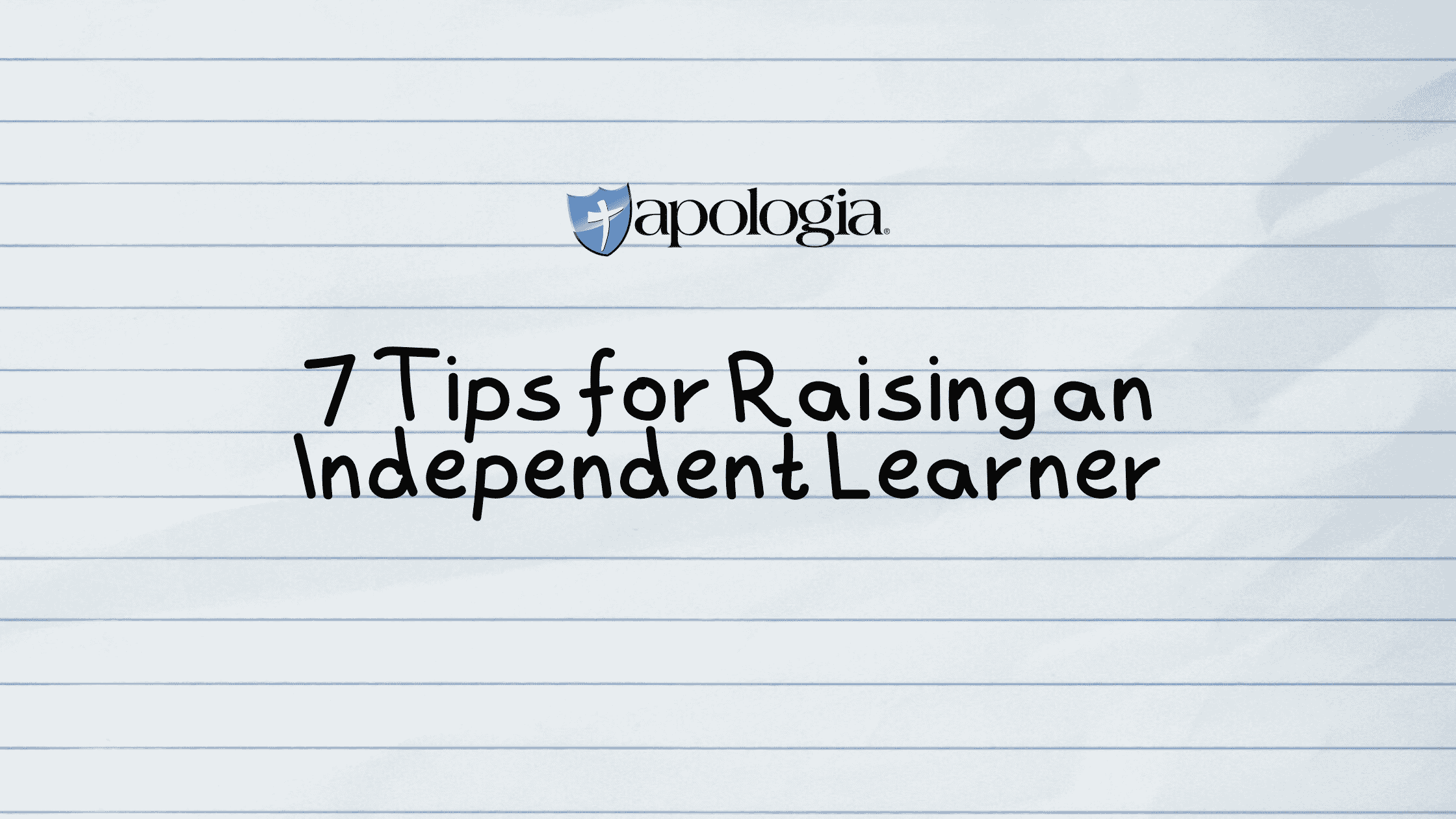
7 Tips for Raising an Independent Learner
Deb Bell was the first homeschooler I heard use the phrase, independent learner. For me, an exhausted mother of four at the time, that sounded like heaven. The very idea that my kids might possibly at some point in the distant future be able to learn without my direct supervision sounded wonderful. But I could barely imagine it. At that point in my homeschooling journey, they were all so dependent on me.
And yet, here we are. Not only have my children gone on to learn without me, but they are also now learning beyond me. They are learning things I do not know, could not have taught, and in some instances, don’t really understand. And I am thankful that they continue to enjoy their studies and that each is an independent learner.
Once upon a time, I started homeschooling with one very strong-willed, firstborn son. After him, came two compliant children. Our number four child was also strong-willed, though of the female gender. She was followed by three compliant siblings: a sister and two brothers.
Not that long ago we were all doing the school thing together—reading, running errands, memorizing Bible verses, and writing in our nature journals. It seems like just last week we spent most of our days learning together.
Here are seven things we did along the way that I believe contributed to each child becoming the independent learner they are today. Most of these principles are adapted from Deb Bell’s teachings. This list is simply more specific as to what has worked for our family.
1. We set becoming an ‘independent learner’ as a goal. Even before the kids were reading fluently, we decided we wanted to set them on the course toward becoming independent learners. To us, this meant we would teach them foundational character and skills with the result that they develop the confidence, integrity, and ability to read, research, and respond to any learning challenge or question without constant supervision.
2. We defined and valued diligence. Of the many character qualities involved in becoming an independent learner, diligence is key. Diligence is simply working hard and not giving up, persevering through difficulties and overcoming obstacles, and finishing what you start with excellence. Our reference was Colossians 3:17, “Do all in the name of Jesus.” We talked about this character quality and praised the kids whenever we saw one of them exemplify it in any way.
3. We decided to set them free. Many students’ motivation and desire to study and learn are stifled in situations where they’re not free to explore the subjects, ideas, and skills that interest them most. We are not only determined to allow our kids to pursue their individual interests, but we encouraged them in it. This began with a conversation with each kid individually, simply asking what he or she really liked or was curious about. From there we would assign or challenge the child to research their interest in some way. More often than not these explorations wandered from the traditional academic path, but they have proven the most fruitful academically because their successes motivated them in other subject areas.
4. We set up assignment sheets, books, and schedules. Beginning as soon as our children were able to decipher them, I started providing assignment sheets for each student. This was a huge help to us all. I would plan the week each Sunday night and then fill out their pages. When the kids were young, I would set out their math lessons, their Scripture handwriting work, their spelling words, and AWANA book. We would work down the page together throughout our school day. The assignment sheets helped them to clearly see what they had accomplished and what they had yet to do. Gradually I would help them plan a particular subject or project they were interested in, showing them how to break it down into manageable segments until finally they were filling the whole thing out themselves and becoming a more independent learner.
5. We encouraged their independence. We decided that it was okay if our kids did not win a science fair or essay contest. Although we believe that we, as parents, are there to help them with projects and assignments, we are not supposed to do the work for them. We make ourselves available to answer questions, propose ideas to consider, and proofread submissions, but they cannot wait to get help on the night before the project is due. We want our kids to learn to ‘own’ their work whether they win or lose.
6. We change when necessary. There was a time when I thought I would figure this homeschooling thing out and then just hit the ‘repeat’ button and cycle all of the kids through. But it just hasn’t worked out that way. Each of our children is different and has different needs. There have been several instances when we’ve needed to be flexible and change directions. This is an important life lesson. Life is full of surprises, emergencies, and opportunities. We must pray for discernment and be ready to not only discuss these openly as situations arise but also respond in the best way possible. Sometimes this means changing. Sometimes it means pushing through. Either way, it means growth.
7. We celebrate often. As we have traveled this road together and seen our children work with diligence, investigate and learn about things that interest them, manage their own time, organize, and demonstrate growth as students, we’ve made it a point to stop and celebrate these achievements as a family. In the course of celebrating we make sure to point out God’s grace and faithfulness as we are all maturing in our faith and on our homeschooling journey.
I now have five graduates with two now in high school, and I realize that I am successfully working myself out of a job. Our seven children have become what I had hoped and dreamed they would—independent learners.
The Ultimate Homeschool Planners for students and teens are a great way to help your children plan their days, schedule their school work, and develop into independent learners! Shop apologia.com to view Debra Bell’s homeschool planners for moms, students grades 4-8, and teens.


